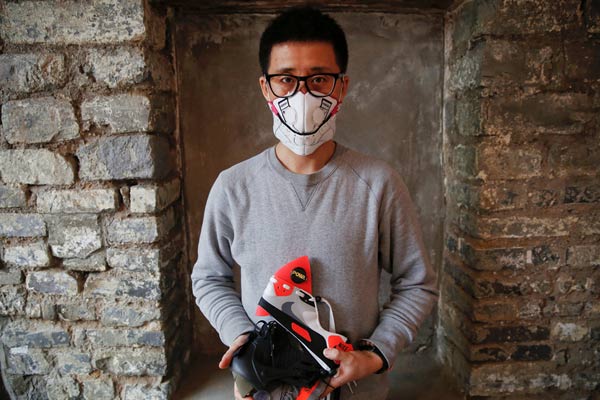Spring Festival effect takes toll on Feb auto sales
China's passenger vehicle sales in February dipped 4.7 percent year-on-year, due to fewer working days as a result of the week-long Spring Festival holiday.
However, analysts said taking the holiday out of the equation, February's sales figure is much higher than the same month last year.
China delivered 1,040,495 cars, sports-utility vehicles, multi-purpose vehicles and minivans last month, diving 39.1 percent from the previous month, the China Passenger Car Association said on Thursday.
"The total number could not represent the actual situation because of the holidays. In terms of average sales per working day, market performance in February surged 23 percent year-on-year," said Rao Da, the association's secretary-general. "We have witnessed a stable recovery of the domestic automobile market since last August," he added.
In the first two months of this year, total sales leapt 21.6 percent year-on-year to 2.76 million vehicles, promising a "good start" for the sector after the market experienced three years of lackluster growth.
"And we expect a high growth rate in March, as the new investment plan made by the authorities will definitely spur domestic consumption confidence and drive vehicle sales," said Rao. In addition, "the three-day Tomb Sweeping Day holiday at the beginning of April, which is perfect for short driving trips, will also bring a sales boom at the end of March", he added.
As China's automobile market, the largest in the world since 2009, has entered a period of low-speed but healthy development, Rao warned that some small domestic players may face severe challenges or even bankruptcy in the near future. "In the past years, many local governments worked hard to make the automobile sector a pillar industry in a bid to drive local economic growth, especially when vehicle prices were high due to deficient production capacity," said Rao.
However, as the industry catches up with mature markets in Europe and the United States, led by several giant auto groups, but with reasonable single-digit growth, "China will no longer see output shortage problems", said Rao. "Mergers and acquisitions in the industry are welcome, to make China's automobile sector strong and competitive, not only big in terms of sales," he said.
General Motors, the largest foreign automaker in China in terms of sales, reported this week that its sales in China were down 10.6 percent year-on-year to 215,070 vehicles due to the Spring Festival holiday.
However, with all-time monthly record sales in January, the US automaker's China sales in the first two months totaled 525,835 vehicles, an increase of 7.9 percent year-on-year and a record.
Japanese automaker Nissan Motor Co reported a 46 percent year-on-year sales decline in February. "As the Chinese New Year holiday's dates are different between this year and the previous year, it's difficult to compare figures," the company said.
The cumulative figures in the first two months of 2013, down 14.1 percent year-on-year, indicated a steady recovery from the 31.3 percent year-on-year decline between October and December 2012, when tensions were high in the Diaoyu Islands row.
Moreover, Nissan said that sales of the new Teana, one of its flagship models, starting on March 18, will add momentum to this recovery trend.























